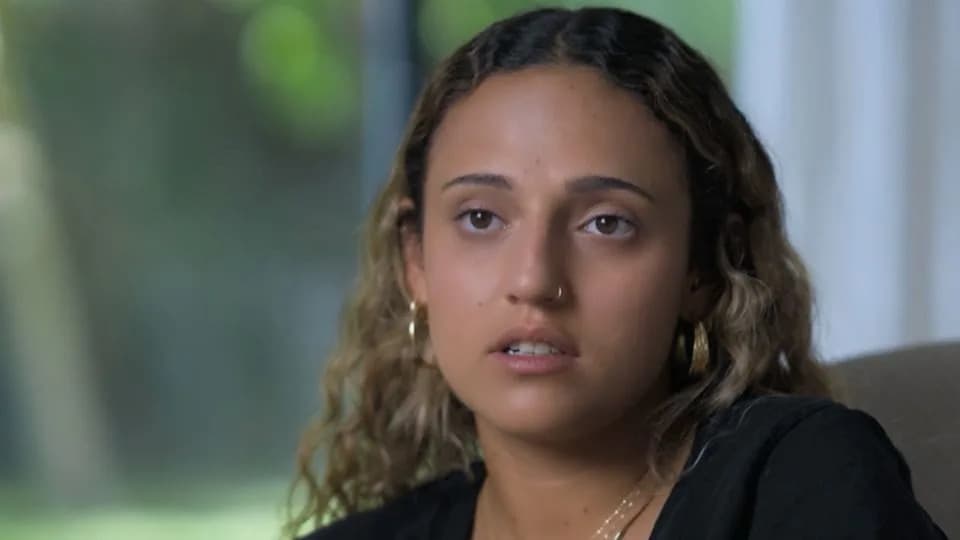Emily Damari, freed after 471 days as a Hamas hostage, spoke at Temple Emanu‑El about the attack on her Kibbutz Kfar Aza home and the months that followed. She described being shot, the killing of her dog, and being moved through more than 30 locations with limited water and sanitation. Damari said she saw armed militants and dead bodies at Shifa Hospital, witnessed kidnapped children held underground, and credited weekly Israeli demonstrations with sustaining hostages’ hope. Reunited with her family, she is writing a book and urged people not to forget the remaining hostages.
“Everyone Needs to Know”: Ex‑Hamas Hostage Emily Damari Recounts 471 Days in Gaza

Emily Damari Shares Harrowing 471‑Day Ordeal
Standing before a packed crowd at Temple Emanu‑El in New York City, 28‑year‑old Emily Damari received a standing ovation before she spoke. Damari, freed after 471 days in captivity, addressed the audience alongside actress and activist Noa Tishbi to recount the experience that has defined her life since Oct. 7.
The Attack and Capture
Damari described how gunmen burst into the safe room of her home in Kibbutz Kfar Aza on Oct. 7. "The first thing they did, they shot my hand," she said. Moments later, she watched them kill her dog. Dragged across the border into Gaza, she begged her captors to end her life rather than be taken hostage: "I don’t want to be a hostage." Instead, she was transferred into Gaza and held for more than 15 months.
Conditions in Captivity
Over the course of her captivity, Damari says she was moved through more than 30 locations — apartments, schools, tunnels, garages and even a tire storage room. She described long periods without showers or reliable water, cramped and filthy sleeping quarters and sometimes no access to a toilet. "Even at the hardest moment I didn’t look down. I always looked up. I didn’t let the terrorists have the satisfaction of seeing me break," she told the audience.
"You go to sleep every night… with that fear, that they are going to rape you. There is a thing about being a woman in captivity."
What She Saw at Shifa Hospital
Damari disputed portrayals of Shifa Hospital as solely a civilian medical facility. She said a doctor introduced himself to her as "Dr. Hamas" and that she saw armed militants, dead bodies, hostages and weapons inside. "Imagine going to your local hospital and seeing armed terrorists and dead bodies," she said.
Traumatic Encounters and Resistance
One of her most painful memories was being taken deep underground into a small cage and seeing kidnapped children, including a nine‑year‑old girl separated from her parents. Damari also resisted the label her captors applied to her: when they called her a "prisoner," she challenged them by asking why she was denied basic rights such as regular meals, contact with her family and exposure to sunlight.
Damari described how her captors routinely watched Al Jazeera on battery‑powered televisions. Seeing footage of U.S. campus protests surprised her; as a gay woman who hid her identity to survive, she said she confronted her captor about protesters she believed would not survive if they entered Gaza. The captor reportedly smirked and agreed.
Hope, Release and Recovery
Weekly demonstrations in Israel — particularly Shabbat gatherings — were a vital morale boost for hostages, she said. Damari said she clung to any sign that her family had survived; when guards briefly switched on a TV, she saw a poster of her in the Knesset and knew her mother was alive. She learned her brother had survived only after crossing back into Israel and being handed to the IDF.
Damari described the moment she truly felt free only after her friends from Kfar Aza, Gali and Ziv Berman, were released in the final hostage deal. "I didn’t feel comfortable seeing the sunset. I didn’t enjoy anything… while they were still there," she said.
Looking Ahead
Damari said she believes she was spared to tell the story and has begun writing a book to document what she and other hostages endured. She closed her remarks with a plea to remember the remaining hostages still held in Gaza and to ensure every victim receives a dignified burial.
Note: This account reflects Damari’s testimony about her captivity and impressions of what she witnessed.
Help us improve.




























